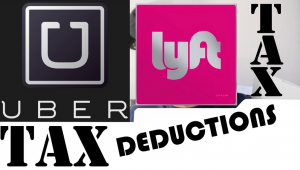
About 10 percent of the U.S. workforce falls into this category – some 14.6 million people. It’s a business and is regulated by the same tax requirements that apply to more usual businesses.
Set Aside A Portion Of Your Income
The smart thing to do is set aside a portion of your income through the year so the April l5 deadline doesn’t catch you by surprise. For instance, people who drive for Uber or Airbnb or otherwise routinely do jobs that are on-demand, may be considered independent contractors. They are likely to receive a 1099 form reporting their income, rather than a W-2. And since there is no automatic withdrawal of taxes, the individual is responsible for keeping track and anticipating tax charges.
Self-Employment Tax
Not only are these self-employed persons responsible for routine taxes, they also may be required to pay a self-employment tax, which has been imposed by the IRS as payment for Social Security and Medicare.
Keep Track Of Possible Deductibles
Anticipating taxes should prompt on-demand workers to keep track of possible deductibles. Drivers, for instance, can deduct the costs of car washes, providing water or snacks for passengers, etc. Accurate records will be invaluable when you sit down to fill out the tax forms.
Schedule C
Schedule C is the form you need to report profit and loss from business income. SE is used to compute the self-employment tax.
Rental Income
Some people add to their income by renting out their home for special occasions. Think Super Bowl. They may realize big bucks for their efforts, but the income is taxable. A one-shot rental is not taxable, but two or more triggers taxes. If you rent your home out for 15 days or longer, you must start to report the rental income and the particulars associated with the rental, such as deductions for utility expenses, etc. That means you have to separate your own expenses from those associated with the rental.
Making estimated tax payments through the year will help fend off the shock you might experience when it comes time to file.
More information is available through Publication 334, the IRS Tax Guide for Small Businesses. Publication 527 focuses on rental income and expenses and Publication 463 offers guidelines on the use of your vehicle for business purposes.